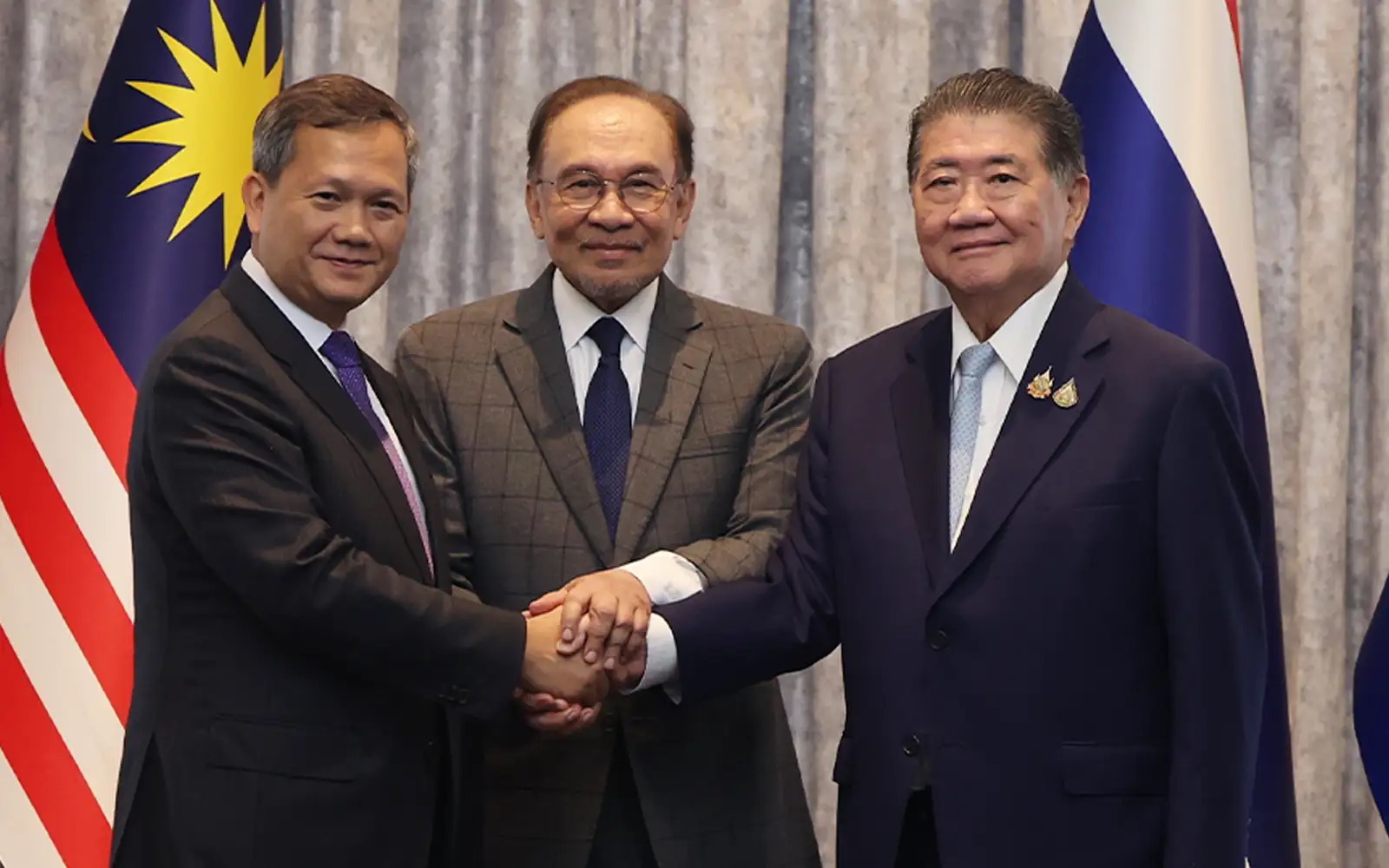
The leaders of Cambodia and Thailand agreed on Monday to an immediate ceasefire effective from midnight, aiming to end their deadliest conflict in over a decade following five days of intense fighting.
Diplomatic Talks in Malaysia Lead to Ceasefire
The ceasefire agreement came after talks hosted in Malaysia by Prime Minister Anwar Ibrahim, who currently chairs the ASEAN regional bloc. Both Cambodian and Thai leaders agreed to halt hostilities and restore direct communication channels.
Anwar Ibrahim emphasized at the joint press conference, “There will be an immediate and unconditional ceasefire with effect from midnight tonight. This is final.”
The two Southeast Asian neighbors accused each other of initiating last week’s fighting, which escalated rapidly with heavy artillery exchanges and Thai air strikes along their 817-kilometer (508-mile) shared border.
Anwar Ibrahim had proposed ceasefire discussions shortly after the long-standing border dispute erupted on Thursday. China and the United States also offered support for negotiations.
U.S. President Donald Trump personally urged both leaders over the weekend to resolve their differences, warning that trade deals would be off the table if the fighting continued.
Rising Tensions and Political Fallout
The conflict followed the killing of a Cambodian soldier in a brief skirmish in late May. Both countries increased troop deployments along the border, triggering a diplomatic crisis that nearly toppled Thailand’s fragile coalition government.
Cambodian Prime Minister Hun Manet expressed gratitude toward Trump and China for their roles in facilitating talks, stating, “Today we have a very good meeting and very good results… that hope to stop immediately the fighting that has caused many lives lost, injuries and also caused displacement of people.”
Hun Manet added, “We hope that the solutions announced by Prime Minister Anwar will pave the way for bilateral discussions to restore normal relations and de-escalate tensions.”
Acting Thai Prime Minister Phumtham Wechayachai, who had earlier doubted Cambodia’s intentions ahead of the negotiations, confirmed Thailand’s commitment to the ceasefire, hoping it would be “carried out successfully in good faith by both sides.”
Author’s Opinion
The ceasefire agreement marks a crucial step toward peace, but decades of border disputes have bred deep mistrust between Cambodia and Thailand. For lasting stability, both sides must move beyond rhetoric and engage in sustained dialogue, confidence-building measures, and clear mechanisms to prevent future clashes. Without genuine commitment to these steps, temporary ceasefires risk becoming cyclical pauses in an ongoing conflict.
Featured image credit: FMT
For more stories like it, click the +Follow button at the top of this page to follow us.
